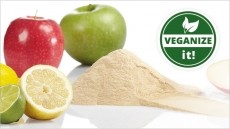Doha banana u-turn draws legal threat
Reducing the trade tariffs that Latin American countries have to pay on exporting their bananas to the EU was a major feature of the talks last month. After tense negotiations, an agreement was reached that would lower current tariffs of €176 euros per ton to €114 by 2016, with an initial cut to €148 next year.
However since no agreement was reached on the Doha talks as a whole, officials have signalled that the banana agreement is also void.
Countries from the region are now planning to make a joint complaint to the EU, Jorge Sauma Aguilar, CEO of Corbana (the Costa Rican banana producers association) told FoodNavigator.com – although a date has yet to be set for a meeting to discuss action plans.
Ecuador has already said that it is planning to pursue legal action over the matter; and Aguilar said that Costa Rica may join the legal battle if the EU does not budge. He called the implementation of the agreement a moral matter.
He said that the agreement was a step in the right direction by Latin American countries – although well short of an ideal outcome that would have put them on a level playing field with African, Caribbean and Pacific (ACP) countries, who can currently export up to 775000 tonnes a year to the EU duty-free.
The ACP countries, understandably, have been resistant to lower tariffs for Latin America, as this would remove their competitive advantage.
The concern now is that when the Doha talks have their next outing – now sure to be after the US presidential elections, and maybe as far away as the end of 2009 – the banana deal will have to be negotiated all over again.
“It is a bad signal that countries intend to come back to the table,” he said.
Costa Rica currently exports 55.9 million boxes, or over one billion kg (100000 tonnes), of bananas to the EU each year. Total banana export values are US$659.1m.
Some 123,700 people rely on the banana industry for their livelihoods, either directly or indirectly (shippers, transporters, and other related professions).
Aguilar had hoped that the Doha deal would enable the industry to at least safeguard existing jobs and production, as trade companies would have realised savings of $30 to $40m a year.
If implemented, the agreement would not have had an impact on banana prices in Europe, said Aguilar, but it would ease the supply of food to the bloc from Costa Rica.
In 1994 Costa Rica had to reduce banana plantations by some 10,000 hectares, as a result of the EC’s regulation 404 the previous year, which created the tariff quota system. It has managed to recover somewhat little by little; plantations currently cover 43,820 hectares.
Doha failure
The Doha trade talks in Geneva collapsed on July 29, following nine days of negotiations.
WTO director general Pascal Lamy said that trade ministers worked their way through a to-do list of 20 topics – and it was only when they reached number 18, on the special safeguard mechanism for developing countries, that they encountered an insurmountable obstacle.
The safeguard barrier would allow developing countries to temporarily raise tariffs temporarily in order to deal with import surges and price falls.
Some countries (including the US) held out for a high import surge to trigger the tariff increase, so as to prevent the safeguard being put in place as a result of normal trade growth.
Others, however, wanted a lower trigger so that the safeguard could be easier to use and more useful.
The talks that began on 21 July have been seen as the last chance to reach an agreement allow time for the US Congress to give its approval before Americans go to the polls in the presidential elections in November.

















